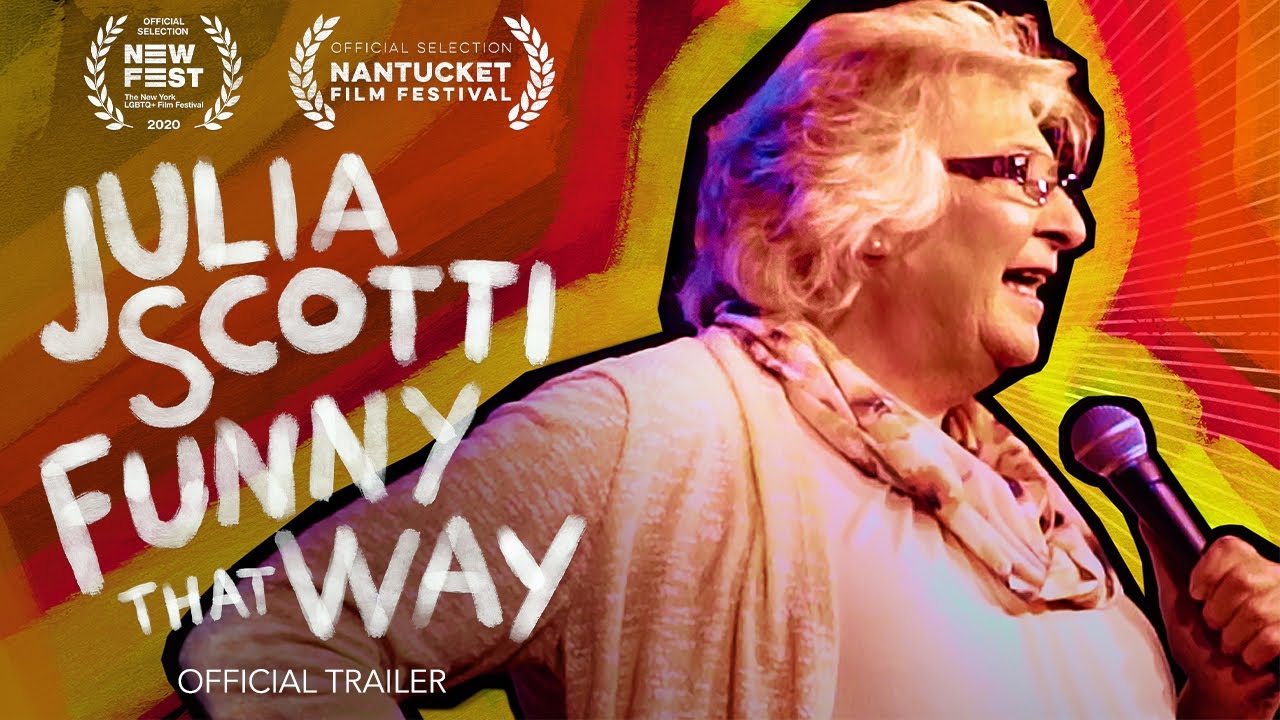When we first posted a review of this film documenting the life and career of comedian Julia Scotti, we felt that it was a positive article. I praised the film and endeavored to treat this very sensitive subject matter with the respect and sensitivity it deserves. If you follow my byline, you know that this is not my first article regarding the Trans community. While I am not transgender myself, I am a friend and a stalwart ally, much to the chagrin of some conservatives who have given me some flack.
So we were shocked when we were contacted by the filmmakers who described my article as “deeply offensive.” We asked for more specific feedback, which they provided. While I take issue with some of their comments, in the interest of Shalom Bayit, what follows is a revision of the previously posted article:
I’ve heard it said that great comics use humor to mask a world of pain. Bouts of depression are common as is substance abuse. Jokes make a good cover. Robin Williams said, “I think the saddest people always try their hardest to make people happy because they know what it’s like to feel absolutely worthless and they don’t want anyone else to feel like that.”
Julia Scotti was such a character. She’s a professional standup comic who was a headliner in the 80s.
“By 1987 … I was living the dream, but something was wrong.”
If her name isn’t ringing a bell, in those days, her name was Rick Scotti.
Julia describes herself as “a self-loathing murderer of her former self.” Such violent language can sound a bit disturbing. Yet I’ve heard such sentiments in my encounters with the trans community. They refer to their given names as their “dead” names. Repeatedly “dead-naming” (addressing a trans person by their given name) is deeply hurtful and offensive to them.
Directed by Susan Sandler, Julia Scotti: Funny That Way is a mix of documentary interviews, new and old stand-up routines, home movies and 2D animation. Julia agreed to the project because she felt that “somewhere, some poor confused kid will stop contemplating painless ways to die.”
It’s hard enough for trans youth to tell their parents. How does a middle-aged husband and father tell their wife and kids?
“Marriage is like an organ transplant. Sometimes it works out just great. Others have to take a lot of drugs to keep from rejecting it.” -Julia Scotti
Some families will be very supportive of a person’s desire to transition, but many consider it a bridge too far to cross. Denied joint custody by a judge, Julia Scotti was estranged from her children for years and missed their growing up. As adults, they’ve made their peace, but there’s still some awkwardness. She’s not their Mom, but she doesn’t quite fit the picture of “Dad” either. They just call her Julia.
One interesting moment was watching Julia and her son react to one of her old stand-up routines. Richard was actually mocking the trans-women he had seen on Geraldo for dressing like women but still sounding like men. His hurtful mockery was his way of acting out his denial.
Given the world of heartache and drama that can come with transitioning, is it even worth it?
Julia’s friends comment that Julia Scotti is so much more positive, joyful and fun to be around than sad sack Rick ever was. Julia had dropped out of show business in order to transition, then got back in the game in 2011. In 2016, she was back on top, appearing on America’s Got Talent and making it to the semi-finals. She currently has a special on Showtime.
Whatever else changes, your funny bone doesn’t. Like Rick, Julia is still salty, edgy and hella funny. But where Rick’s jokes often came from a place of cutting mockery to mask his own pain, Julia takes off the mask and makes us laugh with self-deprecating honesty and joy. And she gets a lot more hugs after her set.
Julia Scotti: Funny That Way is available for download on iTunes and Amazon Prime Video.
Republished from San Diego Jewish World


























